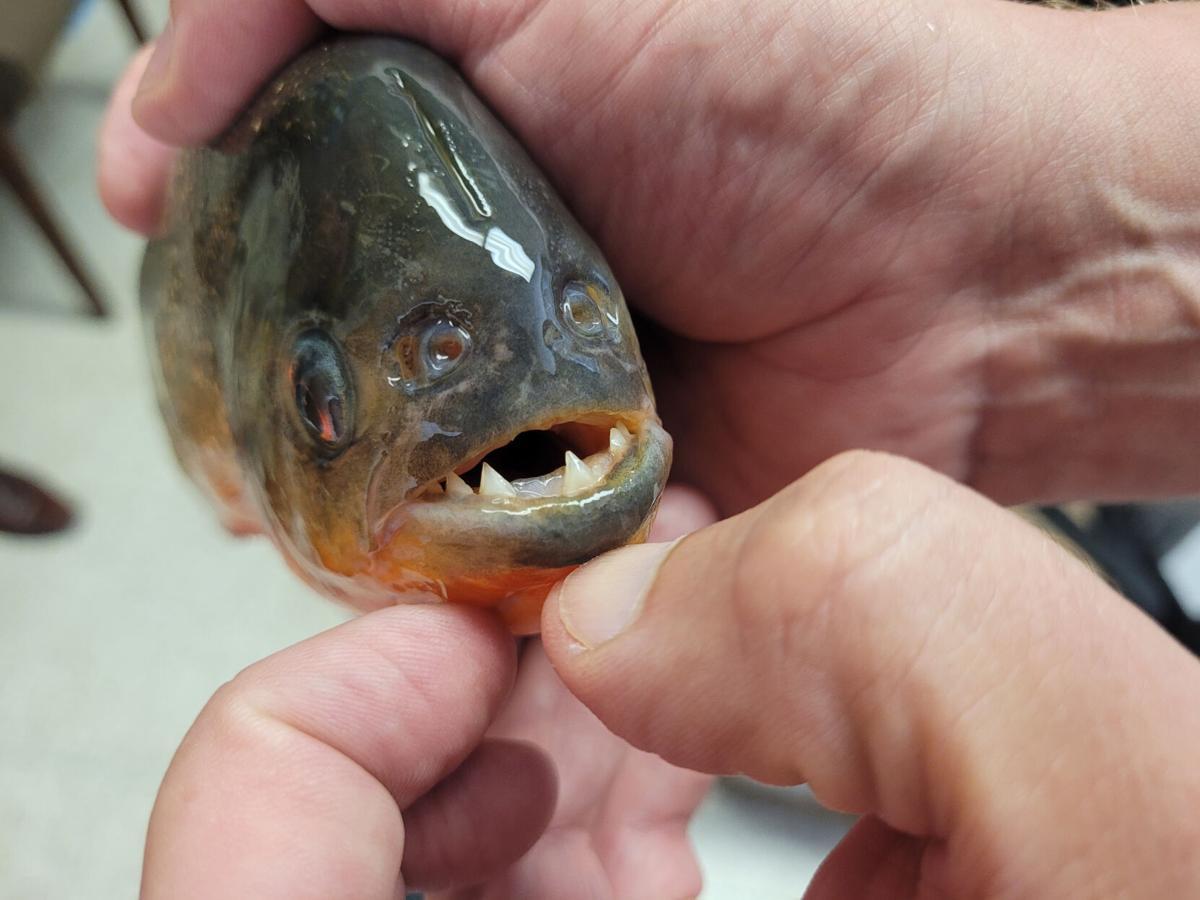A local fisherman catching a red piranha in the LSU lakes last week made national news, and Louisiana’s Department of Wildlife & Fisheries is still investigating the situation.
LDWF said they believed the piranha was originally someone’s pet and the individual released it in the lakes. Red piranhas – also known as red-bellied piranhas – are illegal in Louisiana and 26 other states. However, the fish can be easily obtained even within those states. Red piranhas can be purchased online for under $20 and can also be found at certain trade shows. Other piranha varieties are readily available as well.
LSU freshwater ecologist professor Michael Kaller said that while the aquarium trade is heavily regulated, it’s lightly enforced. He said it wouldn’t be difficult for a student to obtain one of these illegal fish.
“Non-native fish only arrive in these habitats through the action or inaction of humans,” Kaller said, explaining the theory of someone releasing the fish in the lakes is the most likely scenario.
“I don’t think finding this right after the end of a semester is coincidental, that’s a really hard coincidence,” Kaller said. “That lends a lot of credence to someone dumping. Now, that doesn’t mean it was an LSU student, there’s a lot of different people who could do it.”
Kaller said accidental introductions are not always purposeful or malicious, and oftentimes someone might think a fish is dead when they are not, and release it in a lake or river.
“In our profession, we always advise people to dispose of aquarium plants and animals through the conventional sanitary waste disposal system,” Kaller said. “In other words, put them in the real trash. Don’t assume they’re dead, don’t put them in the wild, particularly plants. Fish can appear dead and not be dead. That’s where the accidental side comes from.”
It’s also possible that a student was moving back home for the summer and didn’t want to kill their pet fish, so they released it in the lakes instead, not realizing the potential consequences this invasive species could have on the ecosystem, Kaller said.
In order to determine if the red piranha that was caught was the only one released in the lake, LDWF conducted a sampling program rather than a complete census, which often involves draining the entire body of water or putting a poison or toxicant into the lake to kill all of the fish so they can be counted. Sampling is a safer, although slightly less effective, alternative to censuses.
“What we do is we use a scientifically sound sampling program where we go to likely habitats and use appropriate sampling devices – nets in this case, fish traps, electrofishing which puts a current in the water that stuns the fish – and we’ll go to places and apply these programs to get high confidence that we have completely counted everything, but we never really do,” Kaller explained. “It’s all about applying these sound scientific practices to give us estimates. Estimating zero is truly difficult, but we can estimate that we’re pretty sure it’s zero.”
Kaller said the sampling process in the LSU lakes can be more difficult than other areas in Louisiana because it’s often shallow around the perimeters, and there are numerous underwater obstructions and tree stumps.
After completing an initial sample, LDWF did not come across additional piranhas.
“The Department plans to continue sampling for the presence of piranha,” LDWF Aquatic Nuisance Species Coordinator Rob Bourgeois said. “We do not believe there is any increased danger to those using the University Lakes for recreation but continue to caution fishermen since they are more likely to be bitten while removing piranha from their lines.”
Kaller agreed that it should be safe to continue recreational use of the lakes at this time, as piranhas are not typically aggressive toward humans unless they are disturbed or in a feeding mode.
“I think it’s fine to kayak and paddle board in the lakes, [but] I would be cautious about swimming in the lakes simply because they’re a catch basin for so many parts – the LSU campus as well as all of these neighborhoods,” Kaller said. “You always want to be cautious when you have a lake like that, it can have E. coli and other microbes and bacteria, you want to minimize contact with that.”
Executive Director of the UREC Laurie Braden said they are taking directive from LDWF and kayaks, canoes, paddleboards as well as other lake equipment can still be rented from the UREC’s Adventure Center.
LDWF is urging anyone who thinks they may have caught a piranha to not return it to water and instead contact Rob Bourgeois at rbourgeois@wlf.la.gov or at (225) 765-0765.
Here’s how Wildlife & Fisheries is figuring out if more piranhas are in the LSU lakes
June 7, 2021






